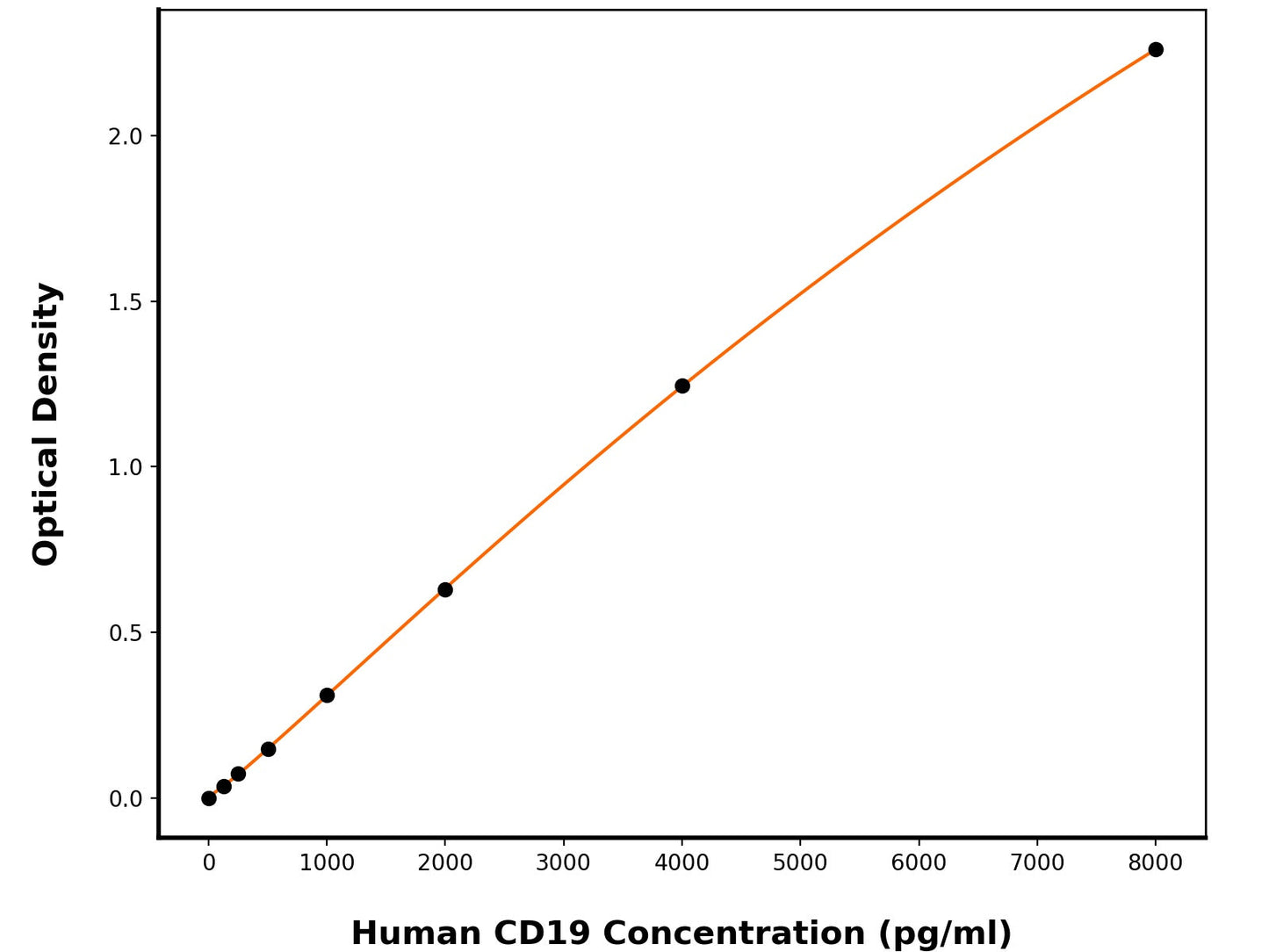1
/
of
1
Human B-Lymphocyte Antigen Cd19 (CD19) ELISA Kit
Human B-Lymphocyte Antigen Cd19 (CD19) ELISA Kit
This ELISA kit is designed to detect Human B-Lymphocyte Antigen Cd19 (Human CD19). The assay plate has been pre-coated with mouse anti-Human CD19 monoclonal antibody. When the sample containing CD19 is added to the plate, it binds to the antibodies coated on the wells. Then, a horseradish peroxidase conjugated mouse anti-Human CD19 Antibody is added to the wells and binds to CD19 in the sample. After washing the wells, substrate solutions are added, and the color intensity is directly proportional to the amount of Human CD19 present. The reaction is stopped by adding an acidic stop solution, and the absorbance is measured at 450 nm.
Catalog No:
BPE232
Regular price
$754.00 USD
Regular price
$580.00 USD
Sale price
$754.00 USD
Unit price
/
per
2 weeks
Couldn't load pickup availability
Product Details
Species Reactivity
Human
Sensitivity
86.49 pg/mL
Detection Range
234.38-15000 pg/mL
Sample Type
Serum, plasma, cell culture supernates
Incubation(s)
3.5 hour(s)
Research Areas
Cancer, Immunology, Stem cells
Background
The cluster of differentiation (CD) system is commonly used as cell markers in Immunophenotyping. Different kinds of cells in the immune system can be identified through the surface CD molecules associating with the immune function of the cell. There are more than 320 CD unique clusters and subclusters have been identified. Some of the CD molecules serve as receptors or ligands important to the cell through initiating a signal cascade which then alter the behavior of the cell. Some CD proteins do not take part in cell signal process but have other functions such as cell adhesion. Cluster of differentiation 19 (CD19) is a member of CD system. CD19 is a cell surface molecule that assembles with the antigen receptor of B-cells. This results in a descent in the threshold for antigen receptor-dependent stimulation. A simplified view holds that the ability of B-cells to respond to the various antigens in a specific and sensitive manner is achieved in the presence of low-affinity antigen receptors. CD19 primarily acts as a B-cell co-receptor in conjunction with CD21 and CD81. The formation of the receptor complex is induced by antigen and CD19, induced by exogenous antigen, has been found cytoplasmic tail phosphorylated and bind to sIg. Cancer Immunotherapy Immune Checkpoint Immunotherapy Targeted Therapy
Shipping Condition
Shipped on cold gel packs.
Storage Condition and Shelf Life
This product can be stored at 2-8C.
Analyte
B-lymphocyte antigen CD19
Regulatory Status
For Research Use Only

